We have a very interesting show about bitcoin, cryptocurrency, BitShares and just general technology. We have Stan Larimer and Bo Rinaldi here. Stan is the Godfather of BitShares. Bo Rinaldi is a technology and marketing strategist. He’s the Jerry Maguire of Silicon Valley. Between the two of them, hopefully, we’ll figure out cryptocurrency and find out a whole lot more.
Listen to the podcast here
Bitcoin As An Unnamed Company with Stan Larimer
I am here with Stan Larimer, who’s known as the Godfather of BitShares and the HERO. Stan Larimer has 40 years’ experience in software, hardware, systems engineering, program management, business development, and even teaching rocket science at the US Air Force Academy. He’s the CEO of Cryptonomex, a leading custom Blockchain development company, as well as father to Daniel Larimer, arguably the finest programmer and visionary in the Blockchain industry. It’s so nice to have you here, Stan.
Thank you. I’m delighted to be here.
You’ve got a smart family, what’s led both of you being so interested in this?
I had retired from the aerospace industry. I was happy just being a renaissance man living on a farm in Western Virginia and putting up solar panels and playing around like I was Thomas Jefferson. My son had done some stuff in my industry. He worked for some of my companies. He had gone off and worked on some unmanned, robotics work and virtual reality. He’s been a serial entrepreneur himself almost from the beginning. He got interested about the same time as Satoshi Nakamoto invented bitcoin. He was looking at how he was going to do digital currency. He ran into Satoshi’s work. He had some conversations with him on some of the forums, on Bitcointalk, for example. At that time, he was just a junior guy, Satoshi was already famous. Dan came back in 2013 with his own ideas of what you could do with the technology. Since then, he’s built three of the major blockchains out there. Collectively, they do 85% of all the transactions in the world. In terms of market cap, he’s probably got 5% or 6% of the total market cap of the industry because Bitcoin got there first. When you talk about usage, he’s moved into a position where people now listen to him.
It’s such a fascinating area to talk about and I’ve had Wolfgang Koester on the show and others and a lot of people who were in the show probably aren’t as well-versed in bitcoin and cryptocurrencies and the differences of what we’re talking about as maybe if you’re in a finance show. I want to go to the basics. Some people might not even know about Nakamoto and who he was. Is he still involved? Can you give a little background as to that?
He’s vanished into myth and then into legend. We don’t even know if it’s a person or an organization. He’s totally mysterious. There was a real person at the keyboard when my son was talking to him back in 2009, but shortly after that, he disappeared. It’s known that he mined an awful lot of bitcoins early on. They haven’t moved since then. He could have disappeared because he died for all we know and left all those coins there. He’s the legendary figurehead, the George Washington of this industry.
A lot of people don’t know about that. That’s why I really appreciate that you brought that up. A lot of people hear bitcoin and they think that means everything, that’s all in cryptocurrency. It’s like a Q-Tip as a swab, you get them mixed up. Can you explain the difference between what bitcoin is compared to the other cryptocurrencies?
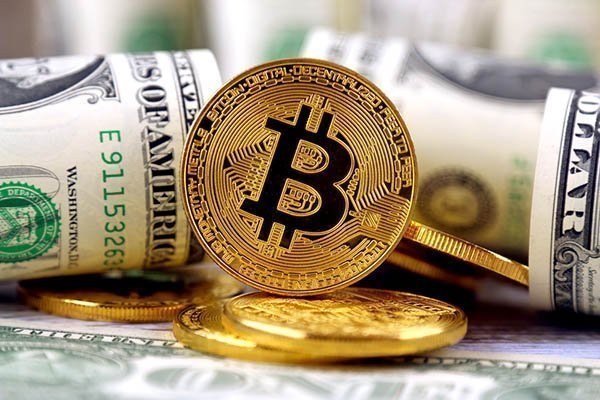
Blockchain Technology: You can say that bitcoin is a currency, but we’d like to think of it as an unnamed company.
My son asked me to come out of retirement to help him build the next generation of these kinds of systems. That’s how I got involved in it. At that time, we told the industry, “You can say bitcoin is a currency, but we’d like to think of it as an unmanned company.” The only thing that a company does is keep track of who owns the bitcoins and transfer them from one account to another. It’s a simple little company. The only reason that it has any value is people want to use it so they want to buy some bitcoins to send to somebody. It provides a useful service for transferring value around the world. It’s got a fixed supply of bitcoins and a lot more people wanting to use it than there is supply, they bid up the price and they bid it up for two reasons. Number one is because they want to send somebody money, and the other is because they’re speculating on it growing in value. That was the original idea. Think of Bitcoin as a company that starts providing this one-of-a-kind service and people start speculating on it like a stock. As we went forward, we said in 2013, “If that’s the case, why limit it to doing one little tiny function like transferring who owns the coins? Why can’t I put an entire company what we call the Blockchain?”
That’s a ledger out there of transactions that have happened that a whole bunch of robots keep track of for us. “Let’s think of an interesting company that we could do that for. Why don’t we put an entire exchange onto it, so there’s no middleman and no corruption?” Only honest robots keeping track of everybody’s money and give it the ability to make all kinds of different coins instantly. With BitShares, you can make a new coin in fifteen minutes, so other people can do their own version of bitcoin for whatever purpose they have.
[bctt tweet=”The big excitement now is everybody’s out there and making new unnamed companies doing every business model you can think of.” username=””]As a next generation beyond that, Dan said, “Why don’t we make a company where instead of being an exchange, we’re something like a Facebook, a blogging, social media thing and people earn a digital currency for publishing posts that other people vote up? Every day, there’s a certain amount of coins given out for the best articles in a never-ending contest. Then those coins that are given up, they take on value as people trade them. If you’ve got those coins, you’ve got voting power for voting up other people’s posts over your own.” He went off from that to the third thing and said, “I want to build a platform that will allow anybody to build any company,” just like Mac OS or Windows, it gives you the ability to run applications. EOS gives you the ability to run blockchains, these unmanned companies. The big excitement now is everybody’s out there making new unmanned companies to do every business model you can think of.
When you talk about the actual currencies, one of the things that a lot of people bring up is, “You can sell the currencies, but then what about getting your money out of them?” Let’s say you sell a stock, you have a stock broker and you say, “I don’t want to stock anymore.” It goes into your money market account and you don’t take it into your hands anyway. It’s still sitting out there in a digital format or whatever. You can say, “Send me that cash. I want it tomorrow.” They’ll send you a check, you can cash it in, and you can have something in hand. I’ve heard that that’s very hard to do with this digital currency. Is that true or am I hearing something that’s not true?
I’ll give you two answers, one is true and the other is false. If you invest in a startup, you might not expect to see liquidity in your money for five years. It might go bust and you never get your money. In that sense, when you invest in a startup that is issuing a coin as it’s a way of raising money, wherever that’s legal to do so. Generally, that’s not legal to do in the US because of the issue in your security, wherever it is that you’re allowed to do that, you could turn right around and sell the coin you bought the next day. It’s instantly liquid in that sense. On the other hand, the liquidity is only as liquid is there is demand out there. If there’s no buyer, then you’re not liquid at all. In every single case, every one of these thousands of different coins out there now has some supply and demand. Its value as a function is like Economics 101, supply and demand. If there’s more demand than supply, the price will go up and if there’s more supply than there is demand, the price will go down until people find buyers and sellers.
It reminds me of the limited partnerships, you get in and you’re in. You’ve got to wait for something to happen to get your money out. A lot of people are transferring value without ever taking that cash in hand. Nowadays, you can put your tips and everything on your phone and people are getting used to doing this. It’s less of an issue, but it’s still very confusing to people of why we need all these different cryptocurrencies and there are so many of them. Are they losing value? If one becomes super popular, what happens to the other ones? Can you address some of that?
There are certainly winners and losers all the time. There’s always something upcoming and something fading. There are good old standbys that have been around for a long time and they still have volatility. That volatility is often caused by everybody selling to buy the latest and greatest thing. Then everybody is getting out of that latest and greatest thing and back into the old standbys. Depending on the ebb and flow of what’s new, that could vary. News comes up that the government is interfering here or regulating there or whatever and that can cause people to panic and sell. There’s a rumor that there’s a new ETF out there and everybody starts buying exchange traded fund or buying up speculating that such a fund might come into existence, which institutional investors could suddenly participate. There are all of those rumors circulating around on any given day. The mood could swing back and forth several times.
You mentioned the government, which is an interesting thing to talk about because I know some countries are coming out with their own cryptocurrency. They’ve talked about us having one here. What happens if the government’s going, “I don’t want you to have all this control and we want our own?” What happens to the value of other cryptocurrencies if we get a nationally embraced cryptocurrency from the government?
There are two theories about that. On the one hand, there’s the theory that says the government is going to start competing with our currencies and therefore, it’s going to be a bad thing. Maybe even outline any competition with the government, which would be a bad thing. There’s another school of thought that says, “Once the government starts doing this, it’s going to become mainstream.” People are dying to say, “If the government is doing it, it must be okay. Let me compare what the government’s offering versus what private industries are offering,” that could be a very good thing. There are some governments viewing it as a threat. Usually, to big countries, it’s a threat to their control system and over their citizens. Smaller companies see it as an opportunity to boost their economies and grow and benefit their populations. It’s possible but we’ll see cryptocurrencies catch on in the third world first and become very prevalent there. Then grudgingly, the bigger nations will come on board after they realize the cat’s out of the bag and they can’t stamp it out.
There all these different choices of coins available like Bitcoin. I know a lot of younger people mentioned that they get Ethereum. You talked about BitShares. I’ve heard a lot of Steemit and GoldBack. What are the ones you hear about the most? Can give us a little insight about some of them?
There are several categories. Number one is the ones like Bitcoin and BitShares, which are counterparty free. Nobody’s backing them with anything but they have a fixed supply and they’re useful. Therefore, there’s a supply versus the demand. They home in on some value where the supply and demand are balanced and that’s the value. If the utility grows, they grow over time and those have in the past grown by a factor of a thousand over a couple years. BitShares, during 2017, grew by a factor of 200 as an example. That was in a single year. You can get high growth there, but you can also get rapid swings in the other direction. That’s one category, there’s no counterparty backing it. People like that because there’s nobody who can play games with them, although obviously, people can manipulate the market by buying a level and selling a level at once.
Another category is what we would call user-issued assets. Those are ones where somebody comes along, creates a coin and says, “The reason this coin has value is that I’m going to back it. One of these coins is good for a free trip backstage to see Elton John.” A lot of celebrities are looking at those kinds of things as a way to interact with their fans. To give out these tokens, have contests where people can do things to get these tokens, and they’re good for discounts on concert tickets or whatever. It could be anything. It can be frequent flier miles, you could use it for Chuck E. Cheese’s, tokens for playing games in an arcade and tokens for gambling in jurisdictions where that’s allowed.
The one that I like is Quintric.com. I’m a Director of that company. It’s one of our spinoffs. It’s a gold and silver depository in Salt Lake City, Utah. The neat thing about Utah is it’s got great legal tender laws that allow the metals to be gold or be legal tender. We created digital currencies that were backed by gold, US Mint Gold Eagles and Liberty Silvers Dollars are the backing in the vault. You can take delivery. All of the storage costs are prepaid. It’s insured by Lloyd’s of London. We try to make it as a solid as humanly possible in terms of building confidence in it. There are basically 1,000 Quints for one ounce of gold. You can spend that thing and it doesn’t fluctuate very much at all. It’s pegged precisely to the US Mint, what they charge for one of their premium gold coins or silver coins. People can spend that without having all this fluctuation. The worst case, they can take delivery of the actual metal. It’s more valuable when it comes with all those other features like legal tender and being transportable anywhere in the world in a second. It’s something that has the other properties that’s better than silver and yet it’s silver too. That’s a new product that is very exciting and is going to grow a lot in the upcoming year.
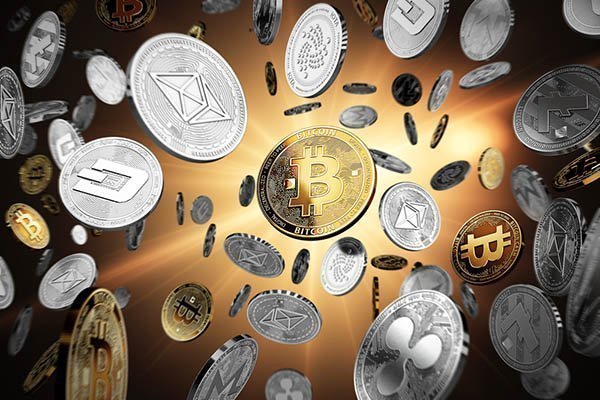
Blockchain Technology: The neat thing about cryptocurrency is other than being in a place where you can store your money, it’s also not subject to the risk of a US dollar collapse.
The neat thing is utility other than being in a place where you can store your money where it’s not subject to the risk of a US dollar collapse. It is something that’s pegged to the value of gold that can be worth a whole lot if the dollar collapses and you happen to be holding that. Most of the time, it’s gaining gradually as the dollar inflates. It’s a good deal either in the best or worst of times. In that sense, it’s more stable than the dollar. You can use that to trade for other digital assets. If you think something’s going up, you buy that asset and if you think assets going down, then you hop back to safety in Quint.
The third category, which is the best of both worlds, are smart coins. Smart coins are backed by an asset like BitShares, but they’re defined by a formula. This one smart coin, bitUSD is pegged to the US dollar. Therefore, it’s always backed by at least twice its value in BitShares and you can trade it around like an ordinary dollar. If you want to, you can take delivery of the BitShares behind it and sell them or whatever. You’ve got the protection and stability of that, but there is no counterparty. The BitShares themselves are locked up on the blockchain where it’s controlled by those trustee robots. Therefore, you don’t even have to trust a gold depository to keep your money safe. The robots are keeping it safe. You can do some fancy things with that. For example, another coin we have is called the HERO and it’s defined as the value of the US dollar in 1913 plus 5%. The Federal Reserve started printing in 1913 and the value of the dollar has fallen to 2% or what it was in 1913. Meanwhile, the HERO has grown by 5% against that decaying dollar and, therefore, is appreciated in value to where it’s worth $170 of now’s dollars. That’s a smart coin that is backed by BitShares, but the formula for what you can cash it in for is something that appreciates by 5%.
If you get that, you’ve got the equivalent of a 5% CD and that’s their deposit and retail, there’s no banking counterparty. There are lots of cool things you can do with those coins. Think about your own bank and what you don’t like about your own bank. You probably don’t like the fact that they charge you $30 to wire money somewhere. If someone wires you money, you have to sit and wait for a week before they say, “We’ve used your money long enough, now we’ll release it to you.” Maybe your bank tells you, “You can withdraw $1,000 in cash in a day, but that’s it. You can’t get all your money out at once.” Your bank may suddenly close your account because, “We don’t like your kind.” People have all kinds of bad experience. Digital currencies work like your online checking account, but it’s open 24/7 every day of the year. You can instantly transact. You don’t have any banking delays of several days or so to wire money. A lot of people like to have some of their wealth in digital currencies where they have better control of it and the ability to pay somebody immediately rather than waiting for the banks to get around to it.
[bctt tweet=”There are certainly winners and losers all the time. ” username=””]It makes a lot of people’s heads hurt because some of them are thinking, “Is it an investment? Is it a daily consumption cash or a physical thing?” That’s where a lot of people get confused. There’s also the thought of technology taking over. There’s like the Bruce Willis Diehards that you see where they have fire sales and they’re able to wipe out your entire account by a push of a button. There’s a lot of fear because people don’t understand what’s going on. What do you think is the worst-case scenario that’s out there?
It’s an awful lot like the early days of the model T where you had to be a mechanic to get your car started. You had to go around the choke and turn the crank and after about five minutes you’d get it warmed up and then it goes puttering away. When you come home with your car, you could pull it into the garage and turn it off. You didn’t have to feed the horse, brush it down and do all the other care and maintenance of having it, you can just park it. The people who had the ability to do the technical things of getting it running and maintaining it, loved it. It took a while for the average person to come along the urge where there was enough support with mechanics and service stations to where it became practical for the ordinary person. That’s the stage we’re in right now.
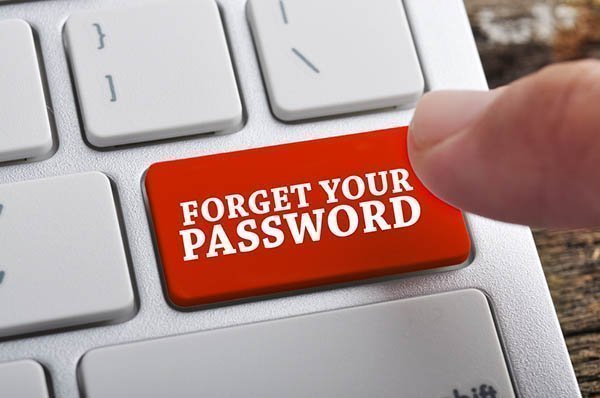
Blockchain Technology: The worst-case scenario is either that the coin you decide to hold goes to zero or you forgot your password.
The worst-case scenario is that the coin you decide to hold goes to zero because of some big scandal. The worst case maybe is you forgot your password. If you don’t have your password, there’s nobody else who has it either. At least with a bank, you can call them up and say, “I forgot my password,” and they could say, “Come down to the bank and bring three forms of identification. Give us a blood sample and we’ll reinstate your coin.” There’s nobody to do that for you in digital currencies. You’ve got to back it up and make sure you keep multiple copies. The neat thing about BitShares is that you can have multiple owners of an account. You and your spouse can each have access to your account. You could set it up so that your five kids, any three out of five can access the account. You could have some other lawyers who have access to the account, locked up in a safe. With that multi-signature function, we fixed it so that if you take the time to set that up and when you screw up, there’s a way to still get at your money.
I was looking at the things that you’ve done with your career and you’re working with this Billion Hero Campaign. What is exactly a heroic endowment by the way?
We donated a million dollars-worth of BitShares into an account and we basically said, “BitShares grow by a factor of a thousand like what Bitcoin and Ethereum have done.” Then we’re going to give that away to twelve good causes. People get to vote for it by going to BillionHeroCampaign.com. You go there and we’ve put up a bunch of that which are run by famous celebrities. You can see those as options and you could vote for any of those existing ones. You can create your own and hope people would vote for it. Sooner or later when BitShares has grown by that factor, then we will give away that money. The first price is $300 million and twelve places $10 million, so that goes to those causes.
The reason we did that was to dramatize the fact that while we’re doing that for charity, you could put a thousand dollars aside and when it grows by the same amount, you have a million dollars. You could put aside $5 and have $50,000. It’s a way of letting people see that example that it’s for a good cause and let them decide if they want to do that. You don’t have to give that money to us on the campaign. That campaign doesn’t take money, it gives money. If you watch what we’re doing, you can set aside your own wallet, savings account and then you get that potential gross. The neat thing about it is the endowment part because one of the things that BitShares allows you to do is to take out what’s essentially a home equity loan. Instead of putting your home up as collateral, you put your BitShares in that endowment up as collateral and you can borrow against it up to 30% of its value. That allows you to spend the money while the endowment continues to grow. It’s very volatile, I wouldn’t recommend borrowing a full 50%. That’s the max the system will let you do, but if the price of the coin falls by half, then you’d get a margin call, which would mean you’d be forced to settle at that low price. Assuming that you borrow 20% or something, you’ve got the endowment growing in the long-term and you’ve got the ability to borrow against it.
[bctt tweet=”When something comes up, something else will also fade.” username=””]A lot of people are going to want to know where they can reach you. Are there any other sites you’d like to share?
The place where I talk about the most is where I publish my blog at Steemit.com/@Stan and there are hundreds of articles I’ve published in the past few years on things we’re doing. That’s where you’ll usually see me talking about whatever the latest thing is I’m thinking about. There’s BitShares.org where you can go to get the BitShares wallet. Quintric.com is where you can go and get gold-backed digital coins on the BitShares network. It may be a good place for the average person to start out who wants to get involved without having to learn everything we do. You can go there, set up an account like any bank account and you can wire money there and get Quints, the gold-backed or Quints, the silver-backed in your BitShares wallet and then you’re out trading them against other things. It’s a nice safe way. My mother and brother have Quintric accounts because it was an easy and a safe thing to do. It’s insured by Lloyd’s of London and it’s a good place to get started.
Thank you, Stan. I enjoyed this.
My pleasure.
The Decentralized Blockchain Technology with Bo Rinaldi
I am here with Bo Rinaldi who is President and CEO of Bo Rinaldi and Associates and has been regarded as the Jerry Maguire of Silicon Valley, and has launched Unify Earth. Unify Earth has, not too long ago, collaborated with the Entire World Sports Alliance, spouse of the UN, centered on social, financial mobility to bring their UEX coins to the mainstream. Unify Earth is a price ahead business based mostly in Nassau in the Bahamas. It encourages worldwide adoption of blockchain technologies with a cross useful electronic wallet built to resolve social, economic and environmental discrepancies in underdeveloped regions around the earth. Welcome to the show. I’m glad to have you here.
Thank you, Diane. The pleasure is all mine.
You’re an interesting guy because I was looking at your bio and you’ve done a lot of things. Tell me how you would describe yourself. Is it all going to be blockchain and that type of thing from this point forward?
I call myself as a social instigator. We created some movements and sponsored some movements. I helped create the Organic Food Movement. It started in 1964 and that was out of Santa Cruz with Alan Chadwick and about 30 of us. I did health food and such until ‘78. I then became the VP of Marketing for a group called ComputerLand and we helped launch the PC revolution in September of 1981 with IBM. In 1991, I was already in Silicon Valley where I started a digital talent agency. That was the biggest thing that I probably ever did at that time which started in ’84. Apple was my largest client when Bill Clinton signed Dot-com into being, exactly about ten years after the launch of the IBM PC in September of 1991. It was the Dot-com Revolution.
It’s all about how we uplift our humanity. I thought organic food would save us, it didn’t. I thought that the PC revolution distributor information would save us, it didn’t. I thought the Dot-com could help global humanity, it didn’t. We do a lot of other things and work with a lot of thought leaders around the world. The UN is one of our greatest sponsors. We can talk about as well as countries and organizations of note and philanthropist, nothing’s moved the dial. I loved the blockchain technology. It was a bad execution of a great idea and we improved all that to amplify the idea and bring the technology to the world.
I went back to my days of selling System/36 and System/38 for IBM. I’m thinking, “That’s what I was doing in the early ‘80s.”
Apple was an RPG3 outfit for manufacturing shop. It was one of your largest clients. I was an RPG Operating System Specialist and we agented for two of the guys that are at Rochester who wrote basic RPG3. Apple wanted to have those minis to do lots of things they couldn’t do on the manufacturing line. They’re still there.
I was telling somebody about this, we were talking about RFPs, requests for proposals and bids and that type of thing. I said, “You don’t know what it was like.” It was so bad. We had printed out everything on coffee machines and big notebooks. Times have certainly changed.
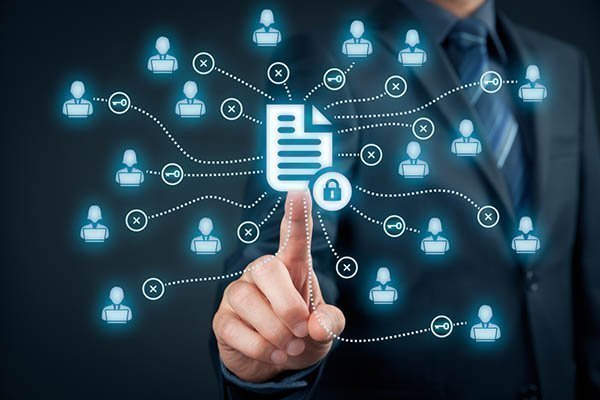
Blockchain Technology: Data is the sovereign right of the individual.
In some ways they have and in some ways they haven’t. We miniaturize things, but data is still data. Data is an important and big tenant of Unify Earth. Data is the sovereign right of the individual. We believe in full decentralization. If it’s centralized, like an IBM and they call it a blockchain, it’s not a blockchain, it’s a centralized peering database. We believe in data sovereignty, data privacy, data governance by the individual, and that data is your sovereign. We’re all about decentralization and the sovereignty of your data and that’s where the value is.
Can you explain what you’re doing with Blockchain if it’s not just coins?
[bctt tweet=”The real value is not so much in trading but in utilization and making transactions happen. ” username=””]The power of the big coin itself is on the Blockchain. We’re not Bitcoin fanatics or whatever. We do have a currency and we could put anybody’s currency under our currency as the UEX, but you have many other coins. We do coins for the Japanese Olympics. We’re doing a coin for a group called Hop Sports. We are doing coins for explorers. We’re doing all kinds of coins. Coins have value, but they have to have real value. The real value is not so much in trading, but in utilization and making transactions happen. What’s been missing on the blockchain is the blockchain was a very imperfect technology. It was a great idea. It was a marriage of three technologies.
It was a marriage of the Merkle tree with peer-to-peer databasing with crypto in the SHA-256. The Merkle tree gives you a prime number by which you have an identifier for a block. That prime number is then transferred to a peer-to-peer database, which is just peering such as what Napster was. Then they shrouded it in Crypto technology called the SHA-256. You put those three things together and that makes the Blockchain. It’s very complicated to understand and it’s very complicated to work on. When you put a shiny penny in front of it, everybody starts going for the penny. This was an incomplete software. In 2008, when they issued it, it was ready and complete. The original people that worked on that, now work for us on Unify Earth and we have reimagined it. We’ve done about a thousand upgrades to it. We have about 100 patents or so that we’re sharing based on that.
We returned to the community all the fixes, security problems, transport and scalability problems, and mining process that they have. We improved everything. Our team is the best software team in the world as well as we have the Blockchain Dream Team. The blockchain is a super strong crypto. We think it could be a lot stronger and we’re here to up-level that for people. We’ve added security mechanisms to make sure it doesn’t have the problem it has had before.
How can you make it stronger? What are the security issues?
When they built the software, it was a small group on a white paper and the white paper was good. When they threw together the software for these three things, they built code libraries. Those code libraries have penetration points. You cannot know where those penetration points are unless you’re a hacker. You can’t even find the software anywhere. If you have a million people, I doubt if anyone has seen the software unless it’s a blockchain. It runs silently in the background in a way that you can see at the starting point, it’s called the Block Explorer. The Block Explorer is where you get your immutable record keeping and the sovereign nature of the block. That’s where you get that credibility of the blockchain. A Block Explorer is very much in crypto. We made it so complicated that it has eight code libraries, starting with that one library with over 1.1 million lines of code all shrouded in hexadecimal and wrapped in Cryptology. It’s very complicated. To break it apart and rebuild it is seen as a $100 million effort.
How can you explain this to somebody who just knows Bitcoin?
You would explain it by understanding about the whitepaper. To every person that you can decentralize wealth, you can decentralize hope and bring the power back to the people. It programs a new economy, which has never happened yet. The whole ICO world was fraught with problems. The hacker community hacked into the systems many times to drain the community of lots of value. The Bitcoin is amazing. It’s amazing to me that the blockchain and the bitcoin are alive as it is. It’s a testament to how strong the fundamentals are, but the software is not. The software is highly fraught with penetration points, lack of scalability, janky mining, improper wallets with viruses, all these things. My team cleaned up all of that, I helped architect it. We designed and imagined it and we have done it. It’s a huge undertaking. That’s why the UN, other large organizations, countries, and not for profits have taken on with us because we’re a values first organization. We lead with human values first and we’ve offered our blockchain, the Unify Earth Blockchain, for the good of all humanity.
How about somebody who’s heard enough about cryptocurrencies and blockchains to understand that one person sends an information from one end to the other. That person has to get that information to release whatever back to the individual so that their transaction goes through. Where is this penetration point problem?
The way that it works is, “I want to send you ten UEXs.” You have your wallet open and the wallet accepts UEXs. You send me a receive address. It will be like a QR code by email or text, and I’ll have the received address. I’ll put that receive address into my wallet. Then it happens. I didn’t do anything else. I can’t do anything. The beauty of it is now called consensus. The mining community now sees, “There’s a transaction. That transaction is coming from a trusted known wallet.” That transaction has to be cleared. It gets cleared by the miners, the miners make money, a fraction of the currency exchange. It’s not like a broker, but it’s more like physical mining. They’re down there in the pit mining. They’re there running this computer mining. It’s the simulation of real mining. Let’s use Merkle in mining because mines have unique prime numbers.
The last time I coded anything was basic, so it’s been awhile since for me. A lot of people hear all these terms and it doesn’t make sense to them. Sometimes there are so many things that can be kept in the way that this blockchain technology. They can’t envision that.
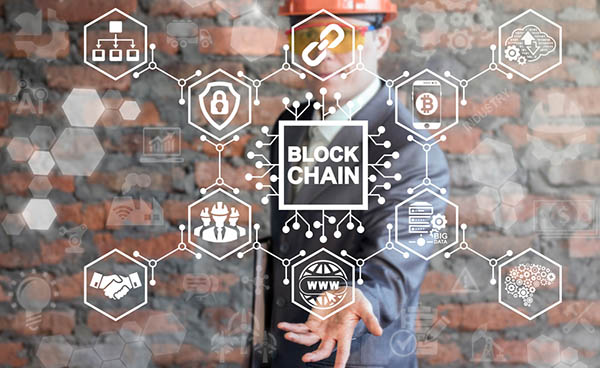
Blockchain Technology: Blockchain are places where you can penetrate things which will be mining nodes.
We set up demonstration labs, usability labs. We’ll set up things for people to see. It’s like understanding the operating system. You have your Mac, there’s no way you’re going to understand the operating system. On my team is the lead from Macintosh. I placed them at Apple which was my largest client. The guy that’s my CTO did OS 2.0 part of that team. This is four times more complex than that operating system. You don’t look at that operating system, you don’t look at this. We call this an Operating System for a new humanity. The consensus happens, you set that and it’s typically three, six consensus points. Six miners approving that transaction, that will take anywhere from ten seconds to a minute and a half. That gives you a scalability problem. We fixed that problem. Blockchain is places where you can penetrate things, which will be mining nodes. It could be the transport layer itself, which is what we found in the problems and it could be the wallets which are a big part and exchanges. This is a nontrivial thing. This is an idea for a new programmable economy and it’s not even close to hitting what is capable of and that’s what we’re here to try to make happen.
Who is your competition?
I don’t have any competition. We want to have more cooperation and collaboration. There are many people who have tried to do what we have and once they see us, they join us. There are many out there that are derivatives of the original Bitcoin. When Bitcoin wasn’t working well in 2008, when they put it out, the Bit code releases that they tried to improve on was 2013. That’s when the Ethereum, Cardano, Monero and Stellar, and all of these came up with derivative ideas of the white paper. They’re all good and they have their valuation, but they’re unstable. They don’t scale. They’re probably penetrable and they have been, historically. They’re not going to be lasting forever in the marketplace. It is seen that 80% of the current players will be going away. It’s not scalable and not secure. It’s not values-first and they don’t have harmonic mining. It certainly does not have user interfaces and wallets that are compelling. We have all that. We’ve done all of that. We have wallets that are so friendly, it will be like a child playing the game.
What happens to the money that’s invested in Bitcoin and Ethereum?
They’re all fine. They trade on exchanges all day long, they go up and down. The variation is up to 60%. That’s a lot of volatility in 2018. We will not stand for that. We want to eliminate this idea of volatility on exchanges where everybody’s going long and short. Nobody’s going to long and short our future. It can happen as your humanity. We will have stability and less volatility by better usage and dynamics within value chains so people can take the benefit of this technology. It’s a wonderful technology that’s gone awry in terms of ideology because of the shiny penny.
[bctt tweet=”Coins have value but they have to have real value.” username=””]How long have you been working on this?
I started on this about five years ago. I started architecting software in 1980. As a software architect and marketing person, knowing what the market needs as well as what the technology people do. I do both. I started working in the blockchain right at the beginning, in micro currencies in the ‘90s because it all started with micro currencies. I started ardently around 2013 when I saw how bad it was with the releases. Two friends of mine called me with blockchain companies where they had invested. One guy retired big on something and sold his blockchain company. It was a great idea, great contracts, but it wasn’t working. They are all looking for more workarounds.
As I looked at it, I realized, “This was faulty technology that you can’t even review.” It’s faulty because you can’t see it. It’s shrouded in crypto as binary and hex. It’s very hard to read because of the million lines of code as a transfer mechanism. I started thinking to myself, “This is wrong, I can bring in some of my top guns in software Silicon Valley style, and we can do what they can say, can’t be done.” I said, “Here’s the problem. It’s insecure and it can’t scale. The mining is janky. There are workarounds everywhere with the mining. It’s very bad. It doesn’t use higher level orders of mathematics. It’s got nominator interoperable technology. It’s a non-traditional platform and it doesn’t have integration books to it. There’s no automation, tools, templates, and utilities.
All the things you would look at knowing your IBM world, we didn’t have any of that in the blockchain. The reason they didn’t have it is faulty technology that led me to believe, “That’s why it’s a bad platform.” I reversed engineered that. I thought about it long and hard and started testing it out, and then started to build it up. One person after another came to us to consult with them. One person after another was either a thief or they were misled or they couldn’t figure out their technology. The community is fraught with these people that don’t understand the real world and some of them don’t belong in the real world.
You’re talking about the real world. You say you can resolve social, economic and environmental issues with blockchain technologies. Can you give an example of that?
A good example is one that we have going on in the sports community. Three million kids a day are on our system. They help the wallets. It’s all about movement and creating greater social engagement globally through movement. There are Nike and Starbucks executives. When he got it started, he was a ball boy for the Chicago Bulls. He’s proven that kids engaged and can transform society and humanity. In his very engaging wallets, they answer some quizzes like, “What is global warming?” If they give five answers and get that right, they get a little reward. “What is Climate Change? What is the purpose of the rain forest? How do you create a better, more sustainable world?” Answer five questions, I’ll give you some coins right there. Education is the first premise of knowledge.
We educate them right within our wallet. We monetize them for learning. Now, they have value. We might want to entertain them. Maybe they want a little movie in the rain forest, what’s happening there and why it’s so interesting? Why don’t you want to kill and slash the rain forest and why you want to keep planting trees rather than cutting them down? If they watched the movie, I’ll give them some more coins. Maybe they’d go work in an organic garden next to wherever they’re doing their sports right there in Kenya. They go work in the organic gardens, they take their wallet, see a little picture of the QR code entering the garden, working at it for an hour. You exit and go out to the refrigerator to open up and I’ll buy your lunch for free just for doing it. It’s a programmable set of human behaviors to up level the human condition.
If you want to cash this in and not just have it be in a digital form, the way you would cash in a stock and not have it sitting in your money market, how hard is it to get out what you’ve got in there?
You go to an exchange that handles whatever the coin you’re representing and say, “I want to sell X,” and tell them what you want to sell it. It’s called peering. Sometimes you want to sell for a different coin and sometimes you want to separate different fiat currency. There’s the Forex, which is your money. There are your precious metals.
What if I want hard cash?
That’s fiat, just go get your fiat. You say, “The UEX is going for $100,” you go to the exchange, “I have ten UEXs that I want to sell.” They put them up there, people buy them, and you get your $1,000.

Blockchain Technology: A lot of people think that they’re going to get rich quick like it’s some kind of fad.
A lot of people think that they’re going to get rich quick like it’s some fad. They want to get in early and nobody knows what they’re buying. What’s the best advice that you can give to somebody?
Never spend something you cannot afford to lose. Never buy something you can’t afford to keep.
What is your next thing to conquer once you’ve solved this problem?
This would never be solved completely. This is a redistribution of wealth. Philanthropists have a hard time to understand where to put their money. There’s donor fatigue, that’s what the philanthropy community will tell you. You have the immutable ledger of the blockchain. You have the accountability of the blockchain. You have all the certification, compliance, and governance of the blockchain. I can target where that investment’s going to go for you and what that’s doing for you. I can even show you what’s happening on that. That’ll eliminate the overhead, that’ll show that direct connection with your billion dollars going to feed humanity. They’re feeding humanity rather than the executives that claim they’re feeding humanity. These are large challenges starting with human behavior and thinking about how to model new levels of value in human behavior.
If you took the Amazon or Facebook model and you turned it upside down, that would be us. I don’t want your data so I can sell it back to advertisers. I want your data, I want to know what you’re saying, so I can tell the advertiser what you want to eat. There’s a project we have called The Cafeteria Experiment. The kids are pretty hip and they know it’s Friday. They want fish sticks at the cafeteria and they go, “Let’s go have some more papier–mâché.” We’ll say, “No.” It’s just the Cafeteria Experiment.
[bctt tweet=”The community is fraught with people who don’t understand the real world.” username=””]Days beforehand, we have enough time to prepare it and we say, “Kids, open up Unify Earth wallet and tell us what you want to eat. We’ll give you ten choices and these are all things that we can make for you custom.” We’ll take the consensus. We’ll have everybody vote on what they want. When they go to the cafeteria, all of a sudden, they’re having Ravioli with a nice vegetable cream sauce and that cafeteria will be cleaned out. There’s a new paradigm where your data is your value and your value is what you want to share with people. The makers and creators want that data.
All the things you’re talking about falls into what I find fascinating about people. It worries me sometimes because I worked in lending before the housing crisis. People tend to get all excited about these ideas. In subprime, for example, you have people come in and they’d want to buy a home. They maybe make $50,000 a year and they wanted a $4,000,000 home, but everybody else is doing it and they wanted it. They lose their common sense. How do we keep them from losing what they need to do?
In our wallets, we can message you, give you specials, give you ideas and educate you, so you’re not running around chasing your tail. We can help up level your whole life in terms of what your value is on the planet, whether it’s housing, food, water, exercise. We can up level with about anything and everything we want to do. Education is key. I also think not falling into traps of advertisers is key. This is a relatively polluted society. I don’t think it’s fake news, it’s fake everything. It’s all made up. We have to get back to a more natural way of living using natural law and take a look at where are we at with water in our city. The main reason cities go bankrupt is they cannot serve their people. The other reason is they can’t support the social services that people already paid for it. The other reason is they have resources in the city, they don’t know how to broker. When California went bankrupt because they didn’t have any money. They were sitting on a surplus of water that no city in the world would ever want to lose access to. All the cities around them were on drought and they didn’t even know how to get the water to them. It’s mainly education and knowledge more than anything.
This was a great background for people who need to know more about what you’re doing. A lot of people want to know more, where can they find out more?
[bctt tweet=”Never spend something you cannot afford to lose nor buy something you can’t afford to keep.” username=””]To get educated, to get some pretty wallets, whatever our current specials are, our latest programs, and everything just goes to Unify.Earth. They’ll see it all right there.
Thank you so much for being on the show.
We just scratched the surface, Diane. We’ll have to do it again sometime.
Thank you to Stan and to Bo. This was a fascinating show and very complicated. I hope you join us for the next episode.
Important Links:
- Stan Larimer
- Cryptonomex
- Wolfgang Koester – previous episode
- BitShares
- Steemit
- GoldBack
- Quintric.com
- BillionHeroCampaign.com
- Steemit.com/@Stan
- BitShares.org
- Bo Rinaldi
- Bo Rinaldi and Associates
- Unify Earth
- Blockchain
- Unify.Earth
About Stan Larimer
Stan Larimer – Known as “The Godfather of BitShares and the HERO”, Stan Larimer has Forty years experience in software, hardware, and systems engineering, program management, business development and even teaching rocket science at the US Air Force Academy. Stan is CEO of Cryptonomex, a leading custom Blockchain development company, as well as father to Daniel Larimer, arguably the finest programmer and visionary in the Blockchain industry. Larimer designed it so that HERO Backing is widely held by strong hands trading publicly on many markets.The HERO is the only coin designed for mainstream adoption. All other coins are reliant on demand from speculators or specialized business models that have problems with the current banking system. Few, if any, offer anything that ordinary people want. The HERO offers the safety of buried gold, the earnings of a 1960’s Passbook savings account, and the ability to pay anyone anywhere in seconds.
About Bo Rinaldi
Bo Rinaldi, President and CEO, who has been regarded as the “Jerry Maguire of Silicon Valley” launched Unify Earth in April 2018.Unify Earth has not too long ago collaborated with the Entire world Sports Alliance, spouse of the U.N. centered on social, financial mobility, to bring their UEX coins to the mainstream. Unify Earth is a price-ahead business based mostly in Nassau, in the Bahamas that encourages world-wide adoption of blockchain technologies with a cross-useful electronic wallet built to resolve social, economic and environmental discrepancies in underdeveloped regions around the earth. Their mission is to make the life of millions simpler by employing a decentralized network so citizens could greater navigate the harsh realities of failing money infrastructures.

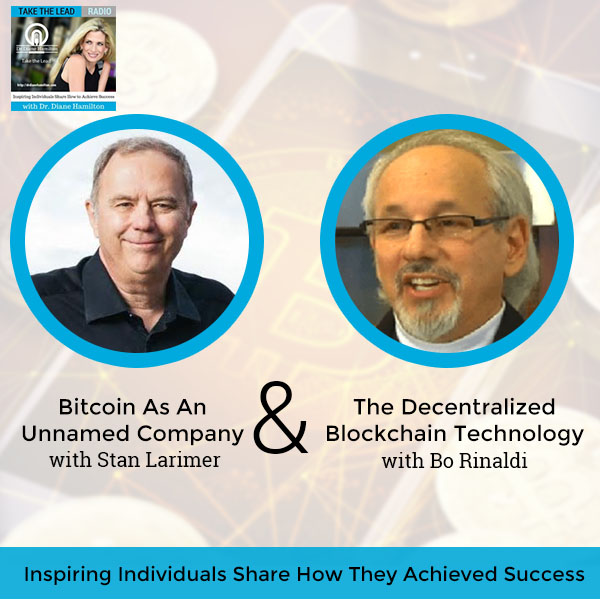
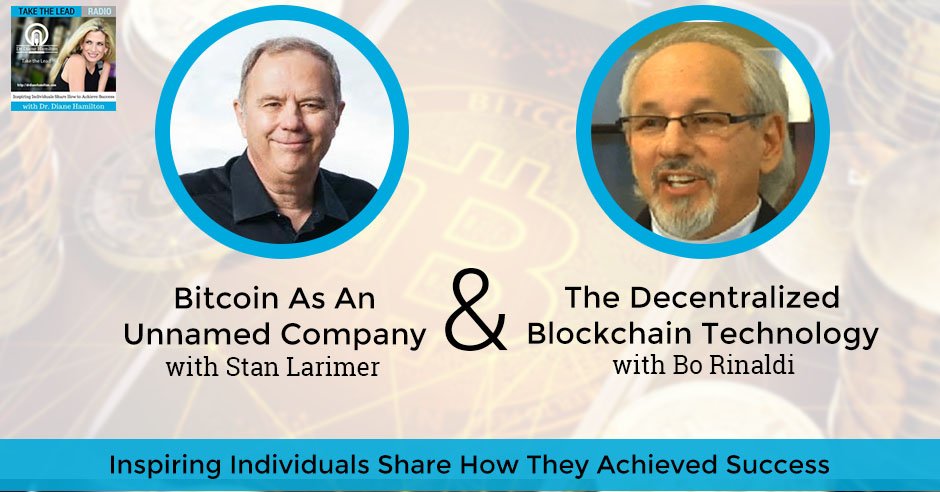



0 Comments